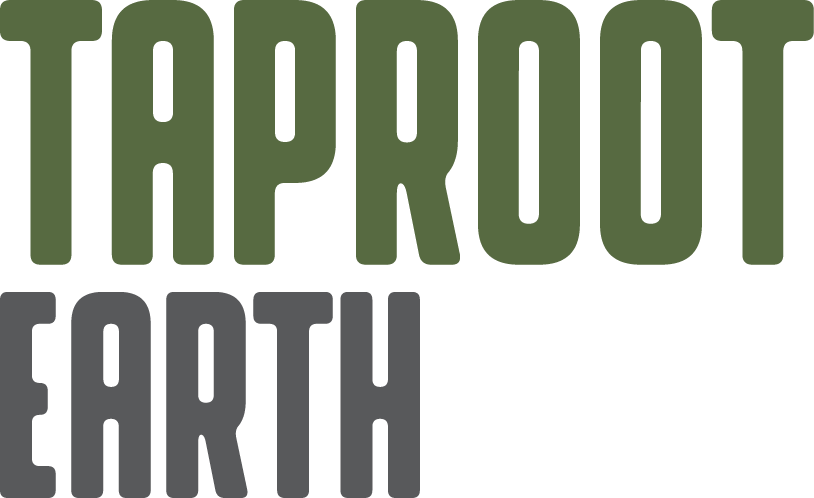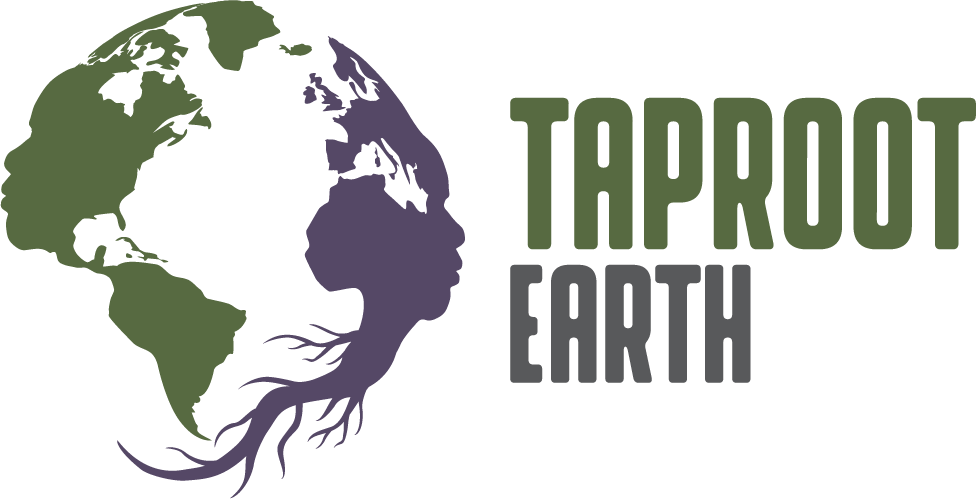November 16, 2023
North Carolina Central University, Durham, North Carolina
Five years ago I started talking with folks–several in this room–about the need for a conversation. About how to meet this moment. A moment of real movement-led advancements on climate and environmental justice and a moment of severe backlash, in which we are losing ground on using the law to dismantle the impacts of structural racism and shift power.
At Taproot, our mission is to build power and cultivate solutions among frontline communities advancing climate justice and democracy. To this end, we convene and assemble frontline formations. We have spent the beginning of this week advancing a climate action strategy with frontline leaders from throughout the Gulf South and Appalachia–many also in this room.
Taproot recognizes the need for organizers and law-trained allies–lawyers and scholars–to be in conversation about this moment.
Thus, the Summit on Climate & Environmental Justice, Racism, and the Law was born.
This Summit found a home in Durham and at The North Carolina Central University Law School Social Justice and Racial Equity Institute, The University of North Carolina School of Law Center for Civil Rights, and Duke Law’s Environmental Law and Policy Clinic and Center on Law, Race & Policy.
This Summit’s agenda has been shaped by planning and steering committees made up of organizers, lawyers, and scholars from over fifty organizations and institutions from around the country.
* * * * * * * * *
Walking into this space, we carry with us an acute awareness of conditions outside these walls–whether at home, in our neighborhoods, or across the globe.
I wanted to share a few thoughts that I am bringing with me–as an Ashkenazi Jew, whose family immigrated to this country from Europe and assimilated to whiteness and white privilege during the 19th and 20th centuries.
I came fully into my identity as both a Jewish person and an advocate through my understanding of what Jews call tikkun olam or repair of the world. True repair—for me as an individual and for Jews as a people—will never come at the expense of the oppression or dehumanization of others.
I have known for many years that my healing and liberation are directly tied to the safety, self-determination, healing, and liberation of Palestine and the Palestinian people.
Knowing this led me to join delegations to Gaza and the West Bank in 2002 and 2003. Though distant in time, the people and the land in the news today are familiar to me.
Our hosts opened their homes to us throughout Gaza, as we shared tea and coffee and listened to stories from Gaza City to Jabalia through the Middle Area to Khan Younis and Rafah.
We were there to bear witness and to provide accompaniment–tracked by tanks as we escorted advocates and public officials to repair what was once a sweet water well serving 250,000 souls–only to see that well destroyed the next day.
The following year, we were welcomed by activists into Qalqilya, on the West Bank, spending a week in the city the State of Israel has enclosed by a wall built to annex fertile farmland and the aquifer that feeds it.
The words we used then were: Collective punishment. Dehumanization. Occupation. Apartheid.
All of these have led to the word for what is happening now: Genocide.
It is part of a cycle of violence that began long before the senseless deaths and unconscionable brutality of October 7, 2023.
It is fed by dollars and weaponry flowing from the United States to the State of Israel and feeds the militarization of our own police forces that are killing Black, Brown, and Indigenous people here in the United States.
The call for a ceasefire now is a call to halt an active genocide and to let Gaza live. The call for a ceasefire now must also be a call to demilitarize globally and defund the police here at home.
And yet, I know that one barrier to safety and self-determination is conflict arising from the presence of and control over the very resources we rely upon to live.
I know that the West Bank has water, which Israeli settlements consume in abundance while the State of Israel systematically deprives Palestinians of access. And Palestinians in Gaza who once had sweet water now have none.
And I know too that Chevron has just resumed gas production 12 miles off the coast of Gaza.
I know that the Democratic Republic of Congo has cobalt, coltan, and lithium—all necessary for the production of solar power and battery storage – and 7 million Internally Displaced People and the largest number of U.N. verified grave violations against children for the third year running, amid escalating violence, especially against women.
Sudan has huge mineral reserves, including gold.
Indigenous communities from Quebec to Myanmar have been displaced to harness water.
West Papua has oil, gas, gold, and copper.
Chile and Argentina have lithium.
The Gulf South has oil and gas.
Appalachia has coal.
Tribal lands throughout the American West and Arctic have critical minerals, precious metals, and uranium.
Land. Water. Energy. Each of these is life-sustaining. And the extraction of each is fueled by and facilitates colonialism and racialized capitalism – another cycle of violence that devalues lives of color from the Global South to the Gulf South.
Throughout the world, social movements are fighting for reparative and transformative solutions to shift this balance of power.
We at Taproot unapologetically believe in
- A world where the frontlines can live, rest, and thrive in the places that we love.
- An end to the expansion of fossil fuels.
- Community stewardship of land, water, and energy.
- The right of self-governance and self-determination for Indigenous, oppressed, and frontline communities everywhere.
- A vision that we can truly achieve climate justice by centering Black Liberation.
And so here we are [. . . .]
We know–as we have been taught by many here today–that moving toward environmental justice means directly addressing environmental racism [. . . .]
Over the past 5 years, we have seen major advancements in climate and environmental justice led by Black, Brown, and Indigenous movements throughout the United States and globally.
- Passage of 21 statutes on environmental justice by 13 states since 2020.
- Passage of climate laws in states such as New York and Illinois intended to direct resources to the communities most impacted.
- Passage of a state environmental constitutional amendment for New York and the leverage of Montana’s amendment through climate accountability litigation.
- At the federal level, the issuance of new executive orders and the dedication of billions of dollars exclusively for disadvantaged communities.
We also saw frontline communities halting pipelines around the globe and moving the conversation on loss and damage to ensure that the people most affected by our extractive economy are at the center of our solutions.
At the same time, our legal landscape has shifted in the United States in direct response to wins shaped by the people who need them most.
- A debt cancellation program for Black farmers who have experienced decades of discrimination by the United States Department of Agriculture was struck down as a result of multiple lawsuits brought by white farmers claiming racial discrimination.
- The United States Supreme Court has overturned decades of precedent and ruled affirmative action unconstitutional.
- Then-Louisiana Attorney General and now Governor Landry took a shot at Title VI of the Civil Rights Act of 1964–through a lawsuit that led to the closure of three environmental justice complaints in Louisiana and has had a chilling effect on civil rights enforcement nationally.
- While we celebrate the law and organizing win in Allen v. Milligan through which the United States Supreme Court struck down a voting map disenfranchising Black Alabamans–that fight continues in Alabama, as well as South Carolina, Texas, and beyond.
This Summit is an opportunity to take stock, assess the current legal and movement landscapes, and collectively and creatively craft a vision to press forward. We hope we can use this time to weave a collective story of our current conditions, cultivate a shared analysis of those conditions, and build movement standards toward a just transition.
Today is for sharing information and working towards that shared analysis – starting with a conversation to ground us in North Carolina, its history, and this moment.
Delivered by Amy Laura Cahn, Taproot Earth’s Legal Director, at the Summit on Climate & Environmental Justice, Racisim, and the Law.


